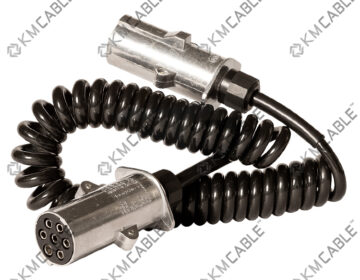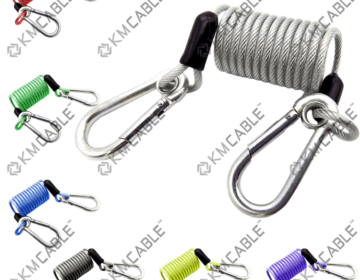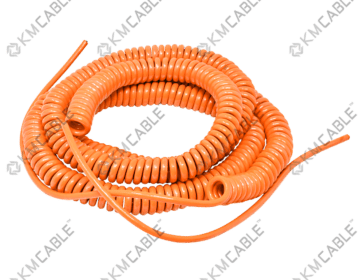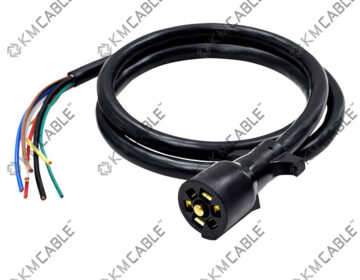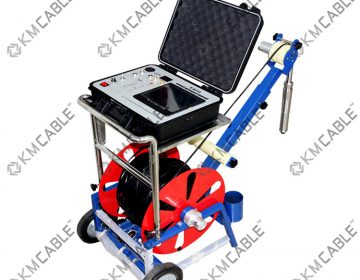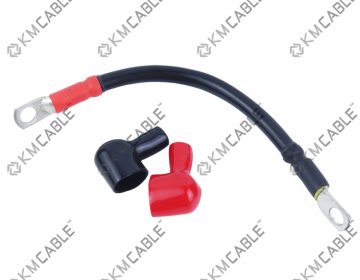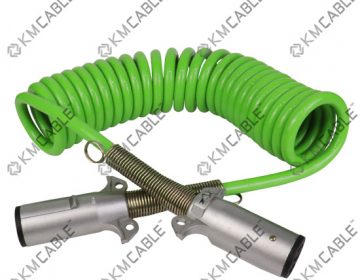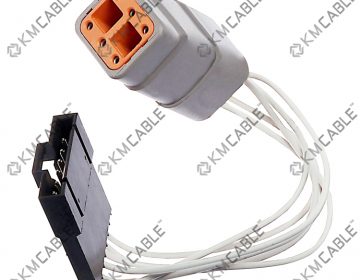
When selecting the right cable for your project, understanding the differences between coil cables and spiral cables is essential. Both types offer flexibility, durability, and retractability, but they are suited for different applications. Whether you need a cable for industrial machinery, robotics, automotive applications, or consumer electronics, choosing the right one can affect performance, longevity, and safety.
In this article, we will compare coil cable vs. spiral cable based on characteristics, usage, safety considerations, and cost. Additionally, we will highlight KMcable, a top-level manufacturer known for producing high-quality cables for various industries.
1. What is a Coil Cable?
A coil cable is a retractable cable that is designed to expand and contract like a spring. It is typically made from durable materials that allow it to stretch and return to its original shape without losing functionality.
Key Characteristics of Coil Cables:
- Retractable and flexible design
- Capable of extending and returning to its coiled shape
- Resistant to tangling and twisting
- Made from high-quality materials such as PVC, TPU, or TPE
- Offers protection against wear and tear in high-motion applications
2. What is a Spiral Cable?
A spiral cable, also called a helical cable, is similar to a coil cable but has a slightly different structure. The conductors inside a spiral cable follow a helical pattern, which enhances flexibility and durability.
Key Characteristics of Spiral Cables:
- Designed for applications requiring repeated bending and movement
- Excellent resistance to mechanical stress and fatigue
- Provides enhanced elasticity and resilience
- Suitable for industrial and automation applications
3. Differences Between Coil Cable and Spiral Cable
While coil cables and spiral cables share similarities, they have fundamental differences that make them better suited for specific applications.
| Feature | Coil Cable | Spiral Cable |
|---|---|---|
| Shape | Uniform coil pattern | Helical winding |
| Flexibility | High flexibility | Enhanced elasticity |
| Usage | Consumer electronics, medical devices | Industrial automation, robotics |
| Retractability | Retracts completely | Maintains elasticity but less compact |
| Durability | Moderate wear resistance | High mechanical stress resistance |
| Price | Lower cost | Slightly higher due to design complexity |
4. Usage Comparison: Coil Cable vs. Spiral Cable
Where is Coil Cable Used?
Coil cables are commonly found in:
- Consumer electronics – Headphone wires, phone charging cables
- Medical devices – ECG machines, hospital equipment
- Automotive applications – Car chargers, diagnostic equipment
- Telecommunications – Telephone cords, radio communication cables
Where is Spiral Cable Used?
Spiral cables are used in:
- Industrial automation – Robotics, conveyor systems
- Manufacturing equipment – CNC machines, industrial tools
- Aerospace and defense – Aircraft control panels, military communications
- Automotive industry – Electric vehicle charging cables, automated assembly lines
5. Safety Considerations: Coil Cable vs. Spiral Cable
When selecting between coil and spiral cables, safety is a crucial factor.
Coil Cable Safety Considerations:
✅ Avoid over-stretching, which can damage internal conductors
✅ Ensure proper insulation to prevent electrical hazards
✅ Choose fire-resistant materials for high-heat environments
✅ Keep cables away from sharp edges to prevent cuts and abrasions
Spiral Cable Safety Considerations:
✅ Designed to withstand high mechanical stress, but ensure proper installation
✅ Use strain relief fittings to minimize tension damage
✅ Select cables with high resistance to oil, chemicals, and UV exposure
✅ Maintain regular inspections in industrial applications
6. Cost Comparison: Coil Cable vs. Spiral Cable
Cost is another important factor in selecting the right cable.
- Coil cables are generally more affordable due to their simpler structure and manufacturing process.
- Spiral cables tend to be more expensive due to their advanced design, enhanced durability, and superior performance in demanding environments.
Factors Affecting the Cost:
💰 Material quality – Higher-quality insulation and conductors increase costs.
💰 Customization – Specialized cables for specific industries may cost more.
💰 Length and thickness – Longer and thicker cables require more materials, raising costs.
7. KMcable: A Top-Level Manufacturer of Coil and Spiral Cables
When choosing between coil cables and spiral cables, it’s essential to source from a reliable manufacturer like KMcable.
Why Choose KMcable?
✔ High-quality materials – KMcable uses premium materials like TPU, TPE, and silicone for long-lasting cables.
✔ Customization options – They offer tailored solutions to meet specific industry needs.
✔ Strict quality control – Every cable undergoes rigorous testing to ensure safety and performance.
✔ Industry expertise – Serving automotive, medical, industrial, and aerospace sectors.
Popular Products by KMcable:
🔹 Retractable coil cables for medical devices
🔹 Heavy-duty spiral cables for industrial automation
🔹 Flexible charging cables for electric vehicles
🔹 Tangle-free telecom cables for communication networks
8. Choosing the Right Cable for Your Project
To determine whether a coil cable or spiral cable is best for your project, consider the following:
✅ Choose a Coil Cable If:
✔ You need a compact, retractable cable for everyday use
✔ The application involves light-to-medium mechanical stress
✔ Cost-effectiveness is a priority
✔ Flexibility and ease of use are essential
✅ Choose a Spiral Cable If:
✔ Your project involves heavy-duty industrial or robotic applications
✔ The cable will experience constant movement and bending
✔ High mechanical resistance and durability are required
✔ Long-term elasticity and resilience are necessary
Both coil cables and spiral cables have their advantages, and the right choice depends on your specific needs. Coil cables are ideal for lightweight applications, offering flexibility and affordability, while spiral cables excel in industrial environments, providing enhanced durability and mechanical strength.
When selecting a high-quality cable, trust KMcable as a top-tier manufacturer specializing in reliable, durable, and customizable cable solutions.
🔹 Need help selecting the best cable for your project? Contact KMcable for expert guidance and industry-leading products!

